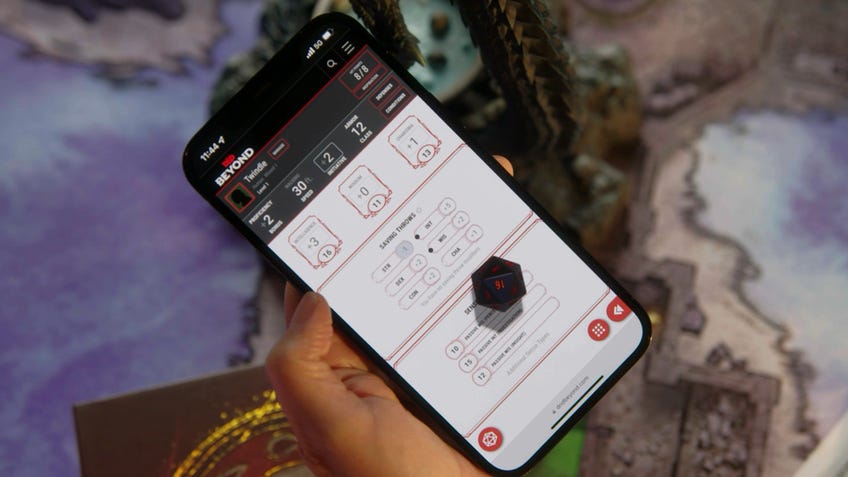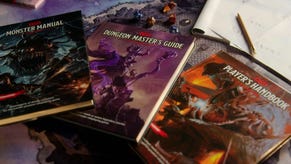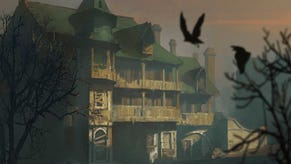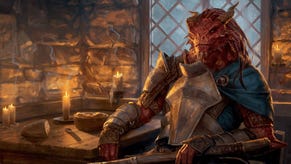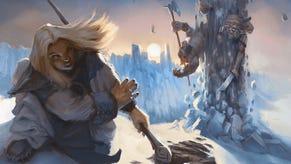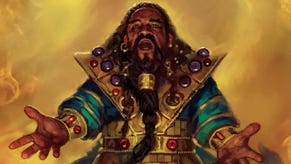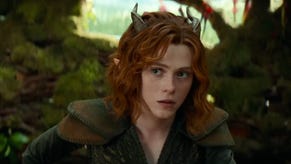6 things One D&D already gets right - and 3 things it doesn’t
The new playtest materials are out, and our opinions are in.
A new version of D&D is coming - and while the fully-fledged edition won’t launch until 2024, we’re already starting to see the new direction in the playtest materials released on D&D Beyond so far.
One D&D is set to be a slightly tweaked version of D&D 5E, rather than a total overhaul, so you’ll still see the same classes you know and love from the current version of the RPG. Some changes are bigger than others, but it’s clear that Wizards of the Coast is tinkering with a lot of key mechanics, and will keep a close eye on player feedback as D&D fans try the new ruleset out.
We can already see a handful of changes that look good for the health of the game, as well as some changes that don’t.
Things One D&D gets right
Replacing known spells with prepared
While we’ve only seen a small number of the One D&D class revisions so far, both the Bard and the Ranger have one big change from their 5E counterparts: the way they learn spells.
The changes to prepared spells allow for much more variation, experimentation and flexibility.
Casters in D&D generally fall into two categories: known and prepared. ‘Known’ casters learn a limited number of spells which are always available for them to cast; ‘prepared’ casters have access to a larger number of spells, but can only ‘prepare’ a limited number per day.
In D&D 5E, both casters were known, meaning they learnt a small handful of spells each level, and couldn’t change them very easily. Now, they’re both prepared, meaning anyone playing a Bard or Ranger can shake up their spell loadout after every long rest. This change allows for much more variation, experimentation and flexibility - and prevents players from being locked into certain playstyles throughout their games.
Tiered feats
Feats, those additional skills you can take in place of an ability score improvement every few levels, vary hugely in the kind of boons they offer players, especially between those in the 2014 D&D 5E Player’s Handbook and more recent sourcebooks.
In One D&D’s playtest, Wizards has made a big effort to help standardise feats through a level system, meaning that weaker feats are available much earlier on to players (i.e. level 1, level 4) whereas stronger feats are walled off behind later milestones (level 8, level 12, etc).
Ability score improvements that increase one of your base stats are also now integrated into the feat system, with a dedicated feat for adding +2 to an ability score, and most other feats automatically acting as half-feats (meaning they confer +1 to an ability score, alongside a new feature).
Epic boon feats at level 20 make players feel like they’ve truly become superhuman adventurers.
Earlier capstones, and epic boons
Class capstones are meant to embody the ultimate completion of your class’ mastery, but are a bit redundant when most players never reach level 20 for their character. One D&D seems a bit more forgiving than 5E, though, given that capstones now hit on level 18 instead of level 20, allowing you to gain all of your class abilities in slightly less time.
The motivation for hitting level 20 lies in the epic boon feats, which are part of the feat system described above. These are step-up features that are only available to level 20 characters, and help players feel like they’ve truly become superhuman adventurers.
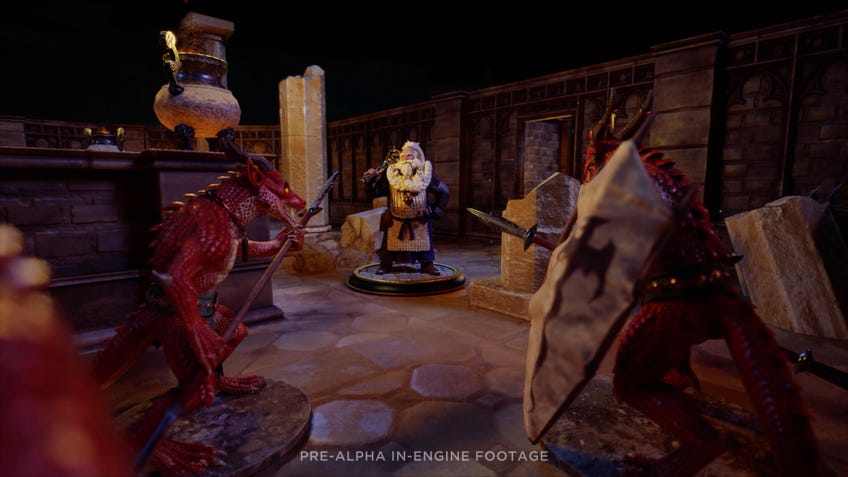
Ardlings!
One D&D is introducing a new player race that could be a new fan favourite in the making. Ardlings are described as “supernal beings who are either born on the Upper Planes or have one or more ancestors who originated there” - similar to the celestial Aasimar race, but included as one of the core classes, and with one key difference. Ardlings are humanoid, but with the head of an animal, making for plenty of fun customisation - and meaning those looking to play a specific kind of animal can do so relatively easily.
As with the Aasimar, though, Ardlings gain a limited flying ability and some specific spellcasting abilities depending on the ‘celestial legacy’ that you choose: Exalted, Heavenly or Idyllic.
Exhaustion changes
Exhaustion was not very workable in D&D 5E. The punishment for missing a night of sleep, or pushing yourself too hard, was so severe that it would quickly spiral into near-certain death, limiting your character’s speed or imposing disadvantage on all ability checks.
One D&D is a little more forgiving, and turns exhaustion into a more mathematical affair. Now, each level of exhaustion imposes a -1 penalty on all d20 rolls made by your character, which is far easier to keep track of, and won’t be quite as disastrous for tired-out PCs.
One D&D's new celestial race, the Ardling, could be a new fan favourite in the making.
Two-weapon fighting is finally viable
It’s no secret that two-weapon fighting is pretty underwhelming in 5E. By forcing players to use a bonus action to use a weapon in their second hand, dual-wielding is very mechanically restrictive, and most are wise enough to avoid it.
In the One D&D playtest, two-weapon fighting is finally viable, as it has been disentangled from the bonus action and can be done as part of a single action – that is, if you pick the feat for Fighting Style: Two-Weapon Fighting, available to Warrior classes (Fighter, Barbarian, Monk).
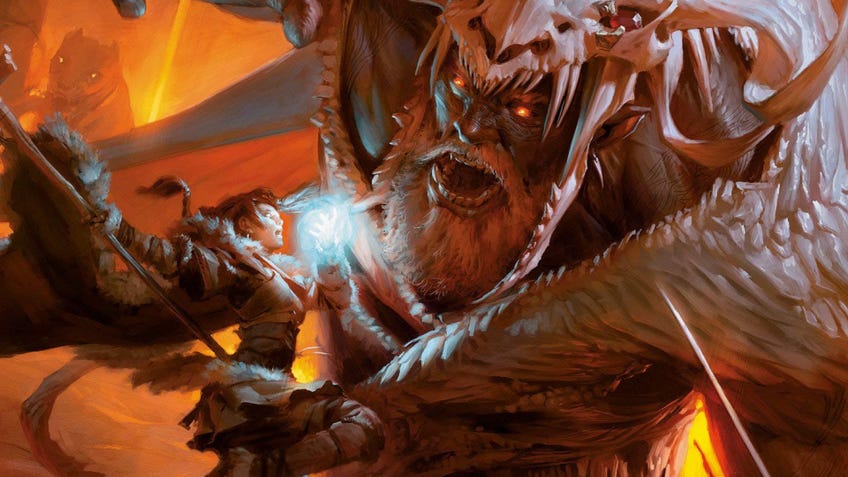
Things One D&D gets wrong
A neutered Bard
Whatever happened to the Bard? The D&D archetype is a mischievous mixture of magician and musician – and its class features should reflect that. However, the playtest seems to reduce the number of things the Bard can do.
It’s great to see the back of Countercharm’s preventive magic - a hangover from the earlier days of D&D, which is so situational as to be basically useless. But Wizards also seems intent on turning other flavourful features into more muted, passive abilities.
Wizards of the Coast seems intent on turning the Bard's flavourful features into more muted, passive abilities.
Bardic Inspiration is now given as a reaction, rather than a bonus action, which really just reduces the number of things a Bard can do on their turns - and kills the joy and strategy of sending an ally an inspiration die for use when they see fit.
Songs of Rest, a 5E Bard ability which allowed you to boost allies’ healing during a short rest by singing a song, and made for plenty of roleplay opportunities, has been scrapped in favour of Songs of Restoration, which is simply a list of healing spells you passively accrue as you gain levels.
An untouched Rogue
The Ranger has been much improved since its 2014 iteration, when D&D 5E first launched, largely thanks to the revised Ranger that appeared in Tasha’s Cauldron of Everything a few years later. The Ranger has clearly been given a lot of love, but the Rogue by comparison is basically untouched in the One D&D playtest so far, and we’re sad to see such a popular class not be levelled up in the same way – especially when the class’ identity as a ‘skill monkey’ is being eroded by its wider family of Expert classes.
The Ranger has clearly been given a lot of love, but the Rogue by comparison is basically untouched.
Reworked spell lists
In the One D&D playtest, Wizards of the Coast appears to be toying with a new spell list system for Dungeons & Dragons, in which classes interact with one of three magical sources (Arcane, Primal, and Divine) instead of having distinct spell lists for each class. Spells taken by the Bard, for instance, “must be an Arcane Spell, and it must be from one of the following Schools of Magic: Divination, Enchantment, Illusion, or Transmutation”.
This adds some clarity to how the Bard receives their spells, but it also locks out some spells that D&D 5E players were happily using for the class – such as Faerie Fire, Heat Metal, Dimension Door, and even the humble Mage Hand cantrip.
New players might not miss these options, and some DMs may be lenient, but it’s sad to see some distinctive choices locked out by a desire for clearer divisions between spell lists.
